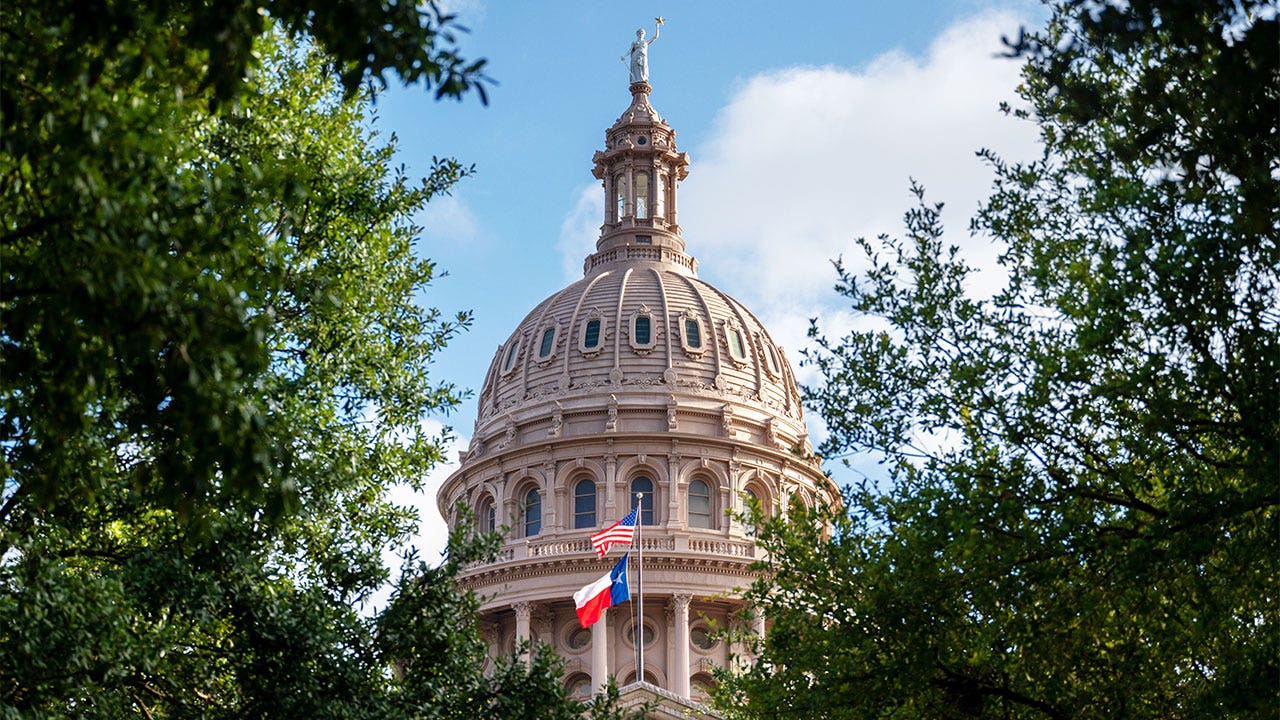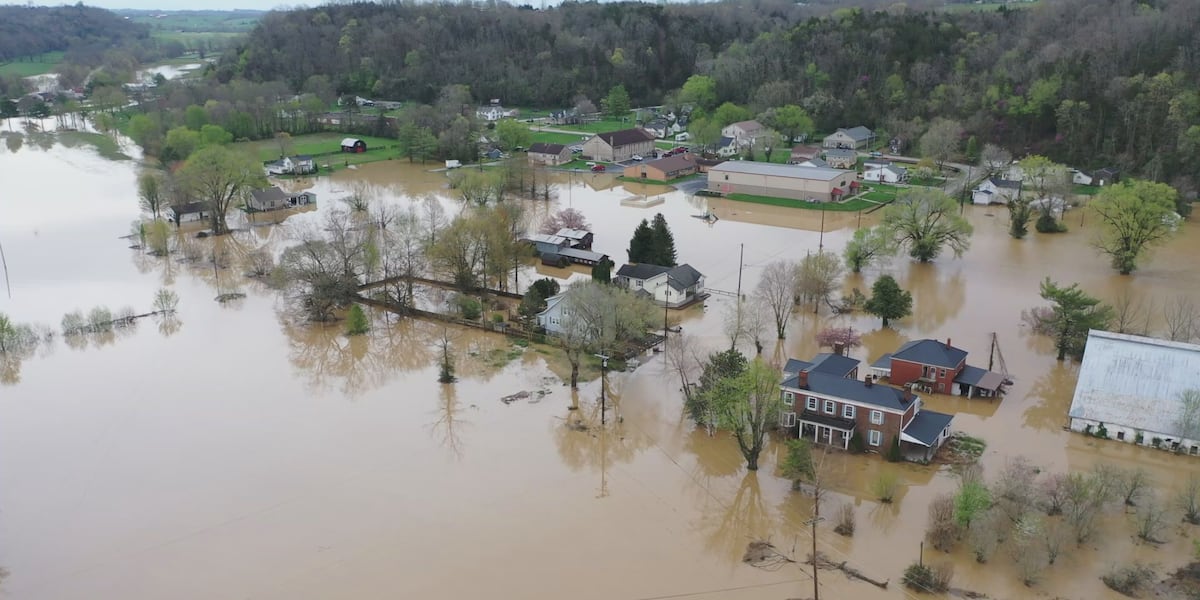Washington
Washington Seems Eager To Create Another Housing Crisis

(Photo by Justin Sullivan/Getty Images)
Getty Images
Washington seems to be setting up the nation to relive the housing and financial crisis of 2008-2009. That last crisis, of course, had lots of moving parts and reflected many bad decisions, but behind it all was Washington’s long insistence prior to the collapse that banks and other lenders extend more and more mortgage credit to lower-income people, the so-called sub-prime borrower. As the government for years laid on this pressure, the proportion of risky, sub-prime loans in the system grew making the system increasingly vulnerable. In the end, when many of these precarious borrowers failed to meet their obligations, all these lenders and those financial players who were vulnerable to them – in other words all in the financial system – collapsed. Now, 15 years on, the Biden administration is again pushing for more lending to lower-income borrowers and accordingly inviting another such disaster.
On the surface, the new effort looks very different from what existed earlier in this century. The essentials, however, and the effect will be the same. Leading up to the last crisis, Washington used regulatory powers to guide lenders toward sub-prime borrowers, rewarding lenders that followed the government’s lead and punishing those who resisted. The new approach relies on what is called the Loan Level Price Adjustment (LLPA) rule. It would subsidize mortgage fees for lower-income borrowers, those with low credit scores who are unable to offer substantial down payments. Those subsidies would extend to the cost of mortgage insurance, which is typically required when a buyer puts relatively little cash down. The rule would raise the funds to offer this support by charging higher fees to those with better credit scores and who are willing to make higher down payments on properties.
The aim is indisputably a worthy one – to bring more lower-income people into home ownership and thereby give them more of a stake in their community and an important leg up on the path to wealth creation. Worthy as the goal is, however, the new LLPA rule would fail to serve its intentions and bring other ills with it as well.
Fairness, or, to use a word much more common these days, equity, is one such consideration. It seems fundamentally unfair to press higher fees on borrowers who are more likely to repay their loan than on those who are less likely to repay it. It would further seem ill advised to effectively penalize (at least relatively) those who may have postponed their purchase for years in order to amass a larger down payment and who also imposed on themselves the financial discipline necessary to earn a high credit score.
There is a more important economic problem. The new rule, by increasing the proportion of borrowers that are more prone to default, would expose the country’s financial system to an ever-greater probability of widespread losses, in other words, the very same risks that led to the 2008-09 crisis.
To be sure, reduced fees will offer low-income borrowers some relief on their costs and to that extent, make it easier for them to meet their financial obligations. But these fees are only a small part of the cost of home ownership. The size of the mortgage and the interest rate on it constitute a greater portion of the burden. And then, of course, there are also the incidental repairs, a leaky roof, for instance, the failure of home appliances, accidents, and a long list of other expenses with which all home owners are familiar. These costs fall on all, but a low-income person, already only just able to meet even a subsidized payment structure, will, when faced with such expenses, more likely fail to meet the terms of the mortgage. If enough of these borrowers fail, the lenders will find themselves in the same kind of precarious financial position that developed in 2008.
It will take time to develop the full amount of risk involved. Right now, there are relatively few such sub-prime loans on the books for mortgage lenders or elsewhere in the financial system. The bankers seem to have longer memories than the people in Washington. The problem may never develop. It seems that recently the Federal Housing finance Agency (FHFA) has put the effort on pause. If the rule change does go ahead, it will take time to develop a critical mass of risky loans. The risk, however, will growth with each passing week, and then the slightest economic setback, much less the recession that is highly likely to develop soon, could bring on the loan failures and a return to the mess that all, save Washington it sees, remember all too well.

Washington
Woman stabbed in Washington City vacation rental had a worldwide impact

WASHINGTON CITY, Utah — Nearly two weeks ago, a woman was found by a cleaning crew in a Washington City vacation rental, she had been stabbed 12 times in her torso.
But the scope of what had happened went far beyond this community and even beyond California where the woman was from – it was felt on the other side of the world.
The victim was identified as Andreea Mottram, who was going to turn 48 on March 29. Six days before her birthday, her body was found in the Sienna Hills community vacation rental she had been staying in.
The two teens charged with her murder are 16-year-old Mihaela Sorescu and 17-year-old Abilagel Flanagan. They were formally charged with first-degree felony murder on Friday.
Sorescu is Mottram’s adoptive daughter.
Mottram was a social worker and co-founder of disability and refugee aid associations in the U.S. and Romania, including the Chicago-based American Romanian Coalition for Human and Equal Rights (ARCHER) and the leading advocacy and aid group for autistic individuals in Romania after her two biological sons were found to be on the spectrum.
In a video for ARCHER, Mottram talked about discovering love.
“At that time, my son was nonverbal and he’s still nonverbal in the meantime. He learned how to say, I love you,” Mottram said. “I don’t know how much you know about the Romanian culture but it’s very hard for us to say ‘I love you.’ And ‘I love you’ comes very hard in Romanian families.”
Mottram was also an advocate for the Roma people.
She later adopted a third child, a Roma girl named Bella, who was also known as Mihaela Sorescu- one of the teens now accused of killing her.
Victim’s daughter identified as one of teen girls charged with murder inside Washington City rental home:
Daughter’s diary showed desire to ‘kill’ mother found dead in rental home
Washington Attorney Eric Clarke told FOX 13 that Sorescu and Flanagan are being charged as adults for murder, as well as car theft, after allegedly taking the vehicle Mottram had rented back to California.
Mottram’s sister, who lives in Romania, said she and her family were too distraught to speak about Andreea.
On the same day police said Mottram was killed, she made her last post on Facebook, simply stating “This is… almost 48.” Four days before, she had posted, “The trouble is, you think you have time.”
Washington
Washington Spirit’s Ashley Hatch Named to NWSL’s Best XI of the Month, presented by Amazon Prime

Hatch earns the monthly honor for the sixth time in her career
Washington, D.C. (04/04/2025) – Washington Spirit forward Ashley Hatch has been named to the NWSL’s Best XI of the Month, presented by Amazon Prime, for her performance during March competition, the league announced today.
Hatch is currently tied for the lead in the Golden Boot race with three goals in three regular season matches so far in 2025. After scoring the match-winner in the season opener in Houston, Hatch tallied her sixth career regular season brace in the Spirit’s March 28 home match. The forward also passed Jess McDonald to become one of the top five all-time regular season scorers in NWSL history. At 56 goals, she now sits four back of fourth-place Alex Morgan’s 60.
Hatch is joined in the attacking third of the March Best XI by Orlando’s Barbra Banda and Kansas City’s reigning league MVP Temwa Chawinga. Since beginning her professional career in 2017, Hatch has been named to the NWSL Best XI of the Month six times, including five times with the Spirit.The NWSL Best XI of the Month, presented by Amazon Prime award is selected each month of the regular season by the NWSL Media Association, a collection of writers that cover the league on a consistent basis and the NWSL’s on-air broadcast talent.
About The Washington Spirit
The Washington Spirit is the premier professional women’s soccer team based in Washington, D.C. and plays at Audi Field in Buzzard Point. The Spirit was founded on November 21, 2012 and is an inaugural member of the National Women’s Soccer League (NWSL) the fastest growing sports league in the US. The club is home to some of the best players in the world who have won championships for both club and country. For more information about the Spirit, visit WashingtonSpirit.com and follow the club on Twitter, Instagram and Facebook.
Washington
US NSA Director Timothy Haugh Fired, Washington Post Reports
-

 News1 week ago
News1 week agoTrump Is Trying to Gain More Power Over Elections. Is His Effort Legal?
-

 World1 week ago
World1 week agoNo, Norway and Sweden haven't banned digital transactions
-

 News1 week ago
News1 week agoCompanies Pull Back From Pride Events as Trump Targets D.E.I.
-

 News1 week ago
News1 week agoWednesday briefing: Just how bad was the White House accidentally leaking military plans over Signal?
-

 Technology1 week ago
Technology1 week agoPorsche’s next Taycan gets an infotainment upgrade — but no new CarPlay
-

 Politics1 week ago
Politics1 week agoTexas DOGE bill passes Senate to streamline state regulations
-

 News1 week ago
News1 week agoFederal judge who drew Trump's anger picks up new case against administration
-

 World1 week ago
World1 week agoUS Army says vehicle of four missing soldiers found in Lithuania




















